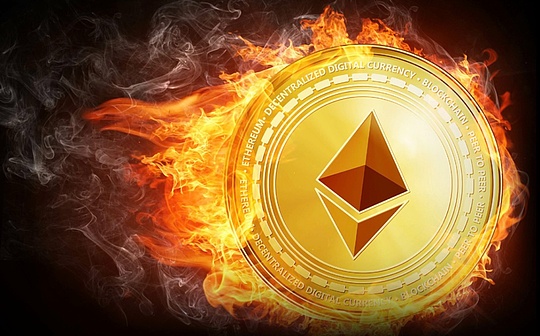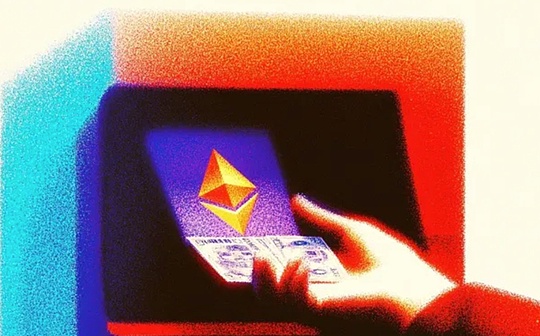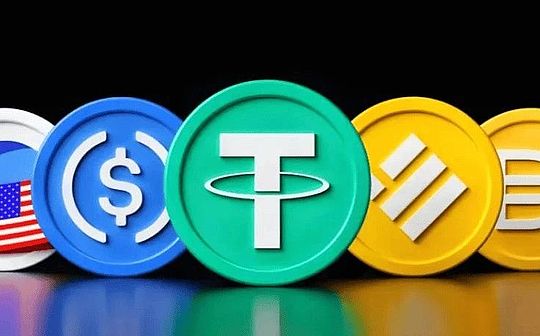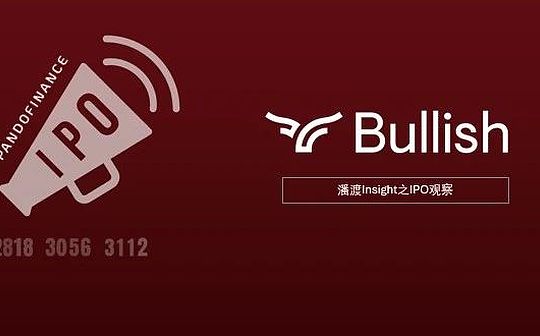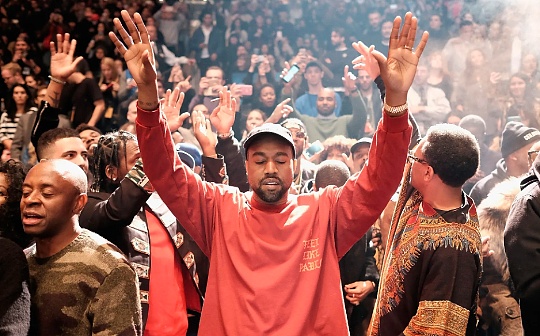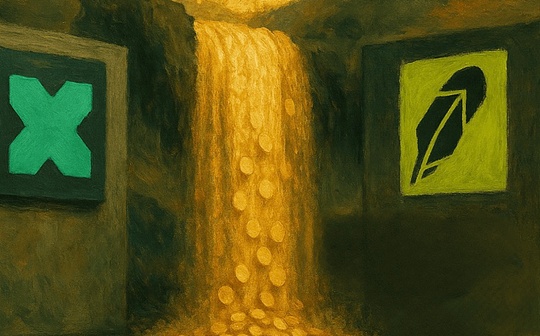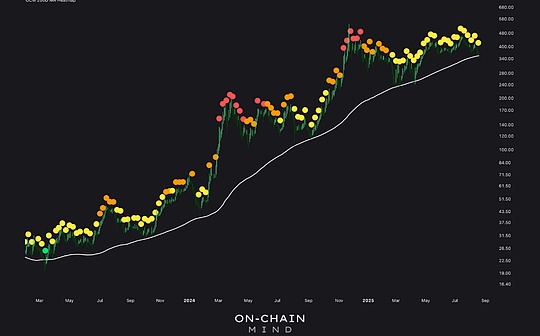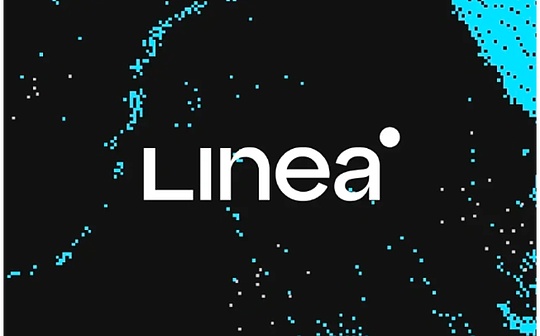
Author: House of Chimera Source: X, @HouseofChimera Translation: Shan Oppa, Bitchain Vision
Linea positioned itself as “the Ethereum Layer 2 Network (L2) born to enhance Ethereum.”Mission seems simple, but full of power.With Ethereum’s price rebounding sharply in the past two months and approaching new highs, Linea has quickly become one of the most anticipated projects in the crypto space, especially with its Token Generation Event (TGE) coming soon.
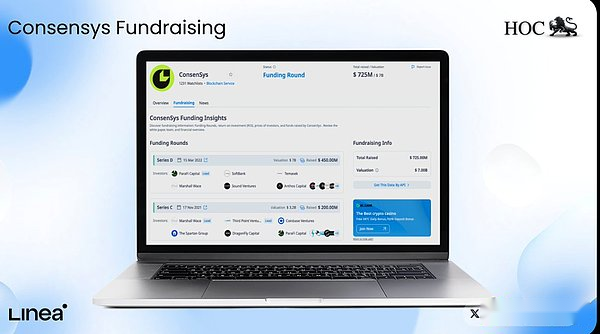
Essentially, Linea is not just another layer two network—it is azkEVM Project, aiming to push Ethereum further away while fully adapting to the Ethereum ecosystem.It was founded by ConsenSys, a company that is behind key Ethereum infrastructures such as MetaMask and Infura.Linea has deep institutional support and years of experience, supporting the core tools used by more than 30 million users around the world.ConsenSys, led by Ethereum co-founder Joseph Lubin, has raised $725 million from organizations such as Microsoft, SoftBank and Coinbase Ventures, providing solid guarantees for Linea’s long-term development.
Linea’s technology and Ethereum’s challenges
The core problem of Ethereum has always beenExtensibility.Competitive bracelets such as Solana are known for their speed and throughput, which forces Ethereum to rely on Rollup to scale.The principle of Rollup is to package a large number of second-tier transactions and submit them to Ethereum settlement. There are two ways: one is optimistic fraud proof (which requires up to 7 days of final confirmation), and the other is validity proof (also known as ZK proof), which is faster and more secure.
Linea adoptsType 2 zkEVM, means it is exactly equivalent to EVM, but not exactly equivalent to Ethereum.In practical applications, this allows developers to deploy Ethereum dApps directly to Linea without rewriting code, while enjoying faster proof generation and lower costs.Linea’s goal is to gradually transition toType 1 zkEVM, achieve perfect compatibility with Ethereum.
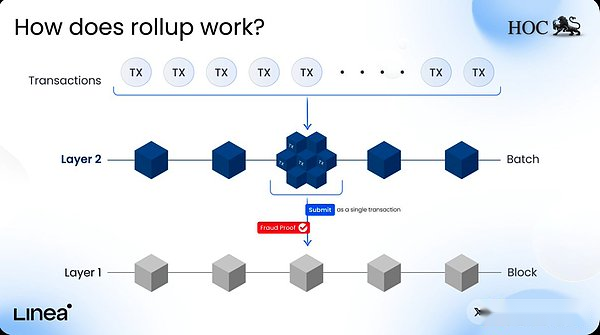
Reduce costs and improve user experience
Linea has demonstrated its ability to improve user experience, most notably a significant reduction in Gas fees.existAlpha V2 upgradeIn this case, it introduces a mechanism to aggregate multiple batches into a single proof, thereby reducing fixed costs and reducing average Gas costs66%.This makes Linea one of the lowest transaction costs L2s, and also lays an advantage for it to attract and retain users.
Core features that drive adoption
Linea’s design revolves around three pillars:
-
Ethereum alignment——Pay Gas fees with ETH to stay consistent with Ethereum native design;
-
Native income——Introduce token economic incentives at the network level;
-
Multi-Rollup Network Architecture——Build an ecosystem by linking different Rollups.
Meanwhile, Linea adoptsDual combustion mechanism: The ETH fee used in the transaction will burn both ETH and LINEA tokens.This mechanism makes Linea’s success closely tied to the health of Ethereum.
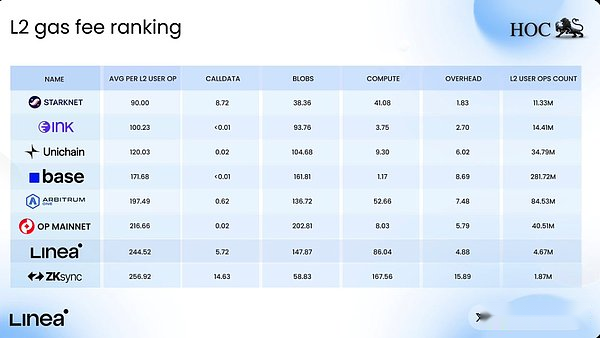
Native income mechanism and ecological flywheel
Another major differentiation advantage of Linea isNative income mechanism.Through integration with Lido, ETH bridged to Linea can be automatically staked, and the resulting proceeds will flow back to the ecosystem to support liquidity and incentivize growth.This design forms aFluid flywheel effect, is expected to support Linea’s long-term development and avoid the prosperity and recession driven by short-term incentives by other projects.
Linea not only positions itself as a layer 2 network, but also passesLinea StackProvide a complete set of tools to help other projects build their own Rollup.This strategy is related to Optimism’sSuperchainThe route is similar, aiming to create a wider network effect, ensuring interoperability and enhancing cohesion across the ecosystem.
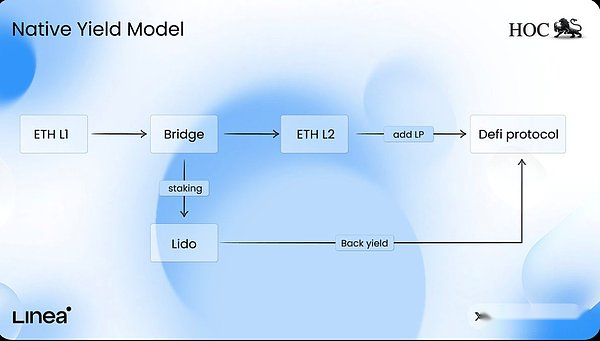
Ecological potential energy and token economics
Linea’s ecosystem is accumulating potential energy rapidly.It has already been withMore than 400 partnersBuild connections to cover DeFi, NFT, infrastructure, and AI fields, including heavyweight protocols such as Aave, PancakeSwap, SushiSwap, and Stargate.In 2024Surge EventsDuring this period, its TVL reached$1.2 billion.Despite a decline after the incentive ends, funds are returning as TGE approaches.Decentralized exchanges that have only been launched for a few weeksEtherex, TVL breaks through$120 million, showing that ecological capital is recovering.
Unlike many projects, LineaDeliberately avoid allocating tokens to venture capital institutions.Instead, it will85% of tokens are allocated to the ecosystem, only15% Reserved for ConsenSys, and hasFive-year lock-up period.In terms of governance, Linea deliberately excludes token governance, composed of trusted Ethereum organizationsLinea Consortiumto manage token emissions, grants and incentives.This design not only reduces regulatory risks, but also ensures a high degree of alignment between Linea and Ethereum’s long-term vision.
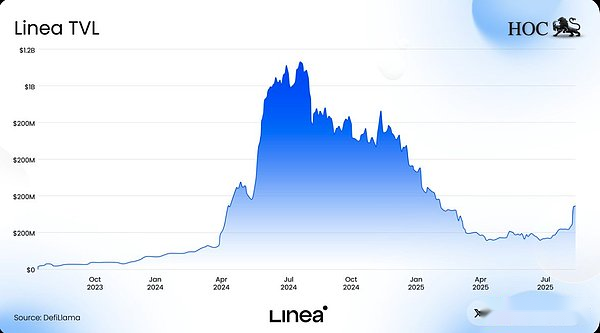
Prospects for the future
According to the roadmap, Linea will be inThe third and fourth quarters of 2025Launch a series of key upgrades, includingNew destruction mechanism, Gas cap increase, and the full implementation of native income mechanisms.arrive2026, Linea plans to achieveType 1 zkEVMand increase network throughput to5000 transactions per second (TPS), while advancing more ambitiousEthereum real-time proof.
Summarize
Linea is a bold experiment: no VC endorsement, ETH native income, Ethereum-first design makes it more than just an expansion solution.Although there are still questions about its token model and long-term value capture, as TGE approaches, one thing is certain – Linea’s goal is not just to scale Ethereum, butStrengthen Ethereum.

